Iranian News Agency Denies Security Chief Met With Senior Saudi Official
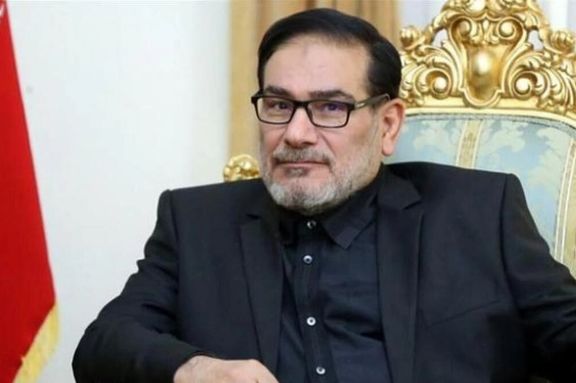
An Iranian news website has denied that national security council secretary Ali Shamkhani has met with a senior Saudi official.

An Iranian news website has denied that national security council secretary Ali Shamkhani has met with a senior Saudi official.
Iran’s Nour News close to the national security council has denied recent reports that Ali Shamkhani, secretary of the council, has met with a top Saudi official.
Quoting “an informed source” at Iran’s Supreme National Security Council, Nour News said, “There have been no meetings or contacts between Ali Shamkhani, Secretary of the Security Council, and Saudi officials.”
The denial issued on Wednesday was apparently a response to reports on social media that said Shamkhani had met with Adel Jubair, advisor to Saudi Arabia’s foreign ministry. Nour News added that there are no plans for a meeting.
Iranian and Saudi officials had a series of meeting in Baghdad in April with Iraqi mediation to reduce their long-running tensions. At the time, it was rumored that Shamkhani was the lead negotiator meeting with Saudis.
In the past two days, reports by news agencies have indicated that a new meeting between Iranian and Saudi ministers has taken place in Baghdad, but did not offer any details.
Saudi Arabia cut diplomatic relations with Iran in early 2016, after mobs attacked and ransacked its diplomatic missions in Iran.
A regional summit convened in Baghdad in September included the foreign ministers of Iran and Saudi Arabia but no bilateral meetings between the sides was reported.
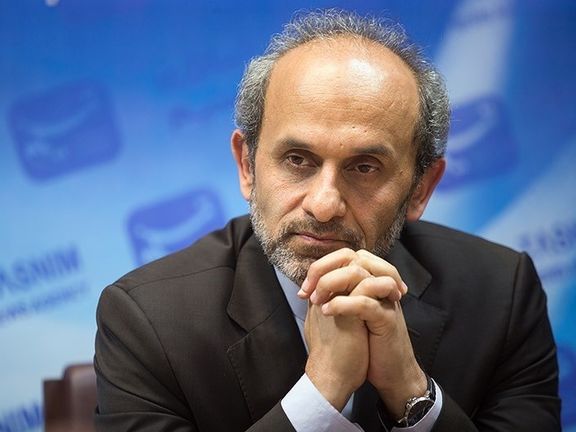
Iran's Supreme Leader Ali Khamenei appointed a new chief at the state TV, which suffers from loss of audience due to political and cultural censorship.
The Islamic Republic's Supreme Leader Ali Khamenei appointed Payman Jebelli, as the new chief of Iran's national broadcaster, the Islamic Republic Broadcasting Organization (IRIB) on Wednesday, putting an end to months of speculation about IRIB's top management.
Nearly in all assessment since March, Jebelli was the most likely candidate for the post. News sources including Noor News, affiliated with the Iranian Supreme Council of National Security (SCNS) had named Jebelli, a seasoned news director at the IRIB as the most likely person to replace former director Abdolali Aliaskari whose tenure ended in April.
The announcement about Jebelli's appointment was reportedly delayed because of the presidential election, but it comes at a tough time for the broadcaster that is losing viewership.
Jebelli, born in 1966, a former Iranian Ambassador to Tunisia, has been the director of Iran's rolling news channel in English Press TV and the deputy IRIB Chief for the national broadcaster's external services that are closely linked to the IRGC Qods (Quds) Force. As external services director since 2016 has been overseeing broadcasts in several languages to the Middle East, Europe, North America and Latin America.
His earlier position as news director required close links to Khamenei's office where all decisions including coverage policy and appointment of the organization's top managers are made.
Recently, Iranian conservative journalists revealed that Jebelli, a long-time political analyst on the IRIB was "the informed source" that Press TV got its often controversial news about nuclear negotiations with the P5+1 from. Jebelli, of course, is no stranger to Iran's nuclear issues, as he was the Iranian chief negotiator Saeed Jalili's deputy for news dissemination a decade ago.
This position gave him a reputation as a hardliner, while his decisions at the IRIB have often been made based on organizational needs rather than political affiliation. Otherwise, based on his analysis, he has been an “open-minded conservative who believed in openness and transparency.” This characteristic is most evident in one of the programs he has launched on the state television's Channel 2. The program, Special Interview, is usually broadcast after the evening news and depending on who is conducting the interview, most of the time it challenges Iranian politicians by asking tough questions.
Khamenei praised Jebelli for his religious and revolutionary devotion, as well as his expertise and long experience at the IRIB and his thorough knowledge of the national broadcasters' responsibilities. Part of his mandate, as spelled out by Khamenei, includes: "strengthening Iranians' national identity, promoting the Islamic-Iranian lifestyle, advocating national solidarity and raising the bar for qualitative standards in programming."
This is a mandate difficult to accomplish with the extent of censorship that prevails in IRIB programming. Last week, a set of new censorship rules dictated that in no IRIB program men should pour tea for women, and no two men can be seen together in a home, lest it ignites ideas in people’s heads. Men and women alone is out of question.
Meanwhile, Jebelli is starting his mandate as IRIB chief while an opinion poll conducted by the state-run ISPA polling agency said the viewership of IRIB news has been constantly declining during the past five years, and that even between March and September 2021, its popularity dropped from 57.7 percent to 42.1 percent.
Furthermore, the poll revealed that most of those who turn to the IRIB for news and current affairs are less educated Iranians of 50 years of age or older, as disillusioned young Iranians turn to social media for getting the news.
Iranian intelligence claimed September 28 that a "terror" group was uncovered and showed "confessions" of a few people, linking the plot to the US and Israel.
Iran’s intelligence ministry and the state television have reported about the demolition of “terrorist” group and the killing of its leader, saying they were engaged in plots directed by “enemies”.
The ministry said the group “directed and supported by enemy intelligence services” intended “to engage in sabotage operations” in Iran.
The intelligence ministry did not mention any country, but the state television, controlled by Supreme Leader Ali Khamenei, broadcast a documentary after the news was announced, referring to the meeting last week of US President Joe Biden and Israeli Prime Minister Naftali Bennett. It said that the US and Israel were behind the group.
The documentary also alleged that Bennett told Biden about the strategy of “death by a thousand knife wounds” in regards with Iran.
Iran has been the target of several high-profile sabotage operations since July 2020 attributed to Israel.
The documentary also showed self-incriminatory “confessions” of a few men and women who said they intended “to engage in acts of sabotage”.
Iranian intelligence services and the state television periodically claim “terror” plots were uncovered and underground groups arrested, but rarely they produce any evidence or follow up with news about investigations or trials.
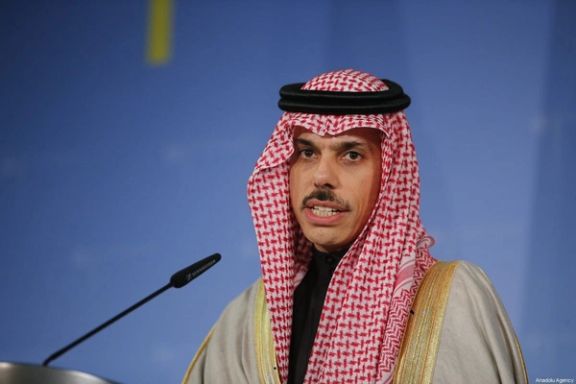
As top US officials variously meet leading Saudis, Iran’s deputy foreign minister calls for Riyadh to open its atomic sites to full inspection and for Israel to sign NPT.
Iran's Deputy Foreign Minister Reza Najafi Tuesday urged Saudi Arabia to be transparent over its nuclear activities and open up the access of the United Nations’ International Atomic Energy Agency (IAEA).
Najafi rejected remarks by Saudi Foreign Minister Prince Faisal bin Farhan earlier Tuesday to the UN General Assembly criticising “Iran's continued breaches and violations of international agreements and treaties related to the nuclear agreement, and its escalation of its nuclear activities in addition to research and development activities.”
Addressing the UN General Assembly’s high-level meeting held to commemorate and promote International Day for the Total Elimination of Nuclear Weapons (September 26), Najafi said Iran rejected the retention, stockpiling, development, use, and proliferation of nuclear arms.
Iran is in a dispute with the International Atomic Energy Agency (IAEA) over traces of previously undeclared radioactive material that it has failed to fully explain and over monitoring access to the UN nuclear watchdog.
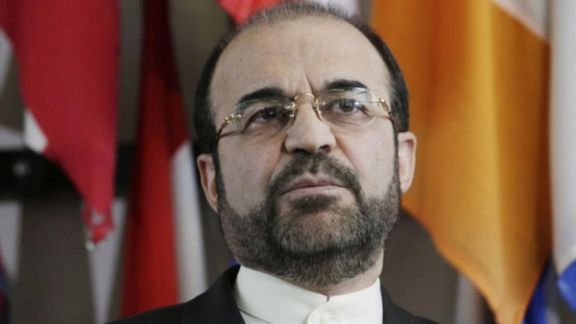
It has also been enriching uranium to 60 percent and stockpiling it in violation of the 2015 nuclear agreement with world powers.
Najafi condemned the modernization and strengthening of nuclear arsenals by the United States and other nuclear-weapon states in violation of their arms-reduction commitments under the Nuclear Non-Proliferation Treaty (NPT). Najafi said Israel continued to "threaten peace and security in the Middle East and beyond through its clandestine nuclear program," and urged the world to invite Israel to join the NPT and place its nuclear facilities under IAEA monitoring.
Unlike Israel, which is believed to hold around 180 nuclear bombs, both Iran and Saudi Arabia are NPT signatories. Saudi Arabia – which has no nuclear reactor but reportedly past nuclear links with both Iraq and Pakistani scientist AQ Khan – has limited the Safeguards access of the IAEA under a ‘small quantities protocol.’
Referring to a 2018 interview with the US CBC's 60 Minutes program in which Saudi Crown Prince Mohammed bin Salman suggested Riyadh might adopt nuclear weapons if Iran developed one, Iran's state-run English channel Press TVand Tasnim news agency both claimed Wednesday that there is “international concern” over Saudi Arabia’s nuclear ambitions.
Saudi Arabia backed former United States president Donald Trump’s 2018 withdrawal from Iran’s 2015 deal with world powers limiting its nuclear program – the JCPOA, Joint Comprehensive Plan of Action. The new administration of President Joe Biden has continued Trump’s ‘maximum pressure’ sanctions as Iran has continued to expand its atomic program with steps that began in 2019.
Prince Faisal this week met with US special envoy for Iran Robert Malley on the sidelines of the UN General Assembly to discuss recent developments in Iran's nuclear case. US National Security Advisor Jake Sullivan met with Saudi Arabia’s Crown Prince Mohammed bin Salman in Saudi Arabia Tuesday to discuss Yemen and Iran - the White House kept Sullivan’s visit low-profile and no photos were issued.
In his speech to the annual UN General Assembly last week, Saudi Arabia's King Salman bin Abdulaziz expressed hope that continuing talks with Iran, brokered by Baghdad, to restore relations would build confidence. The kingdom cut diplomatic ties in 2016 when protestors attacked its Tehran embassy after Riyadh executed 47 dissidents including leading Shi'ite cleric Sheikh Nimr al-Nimr.
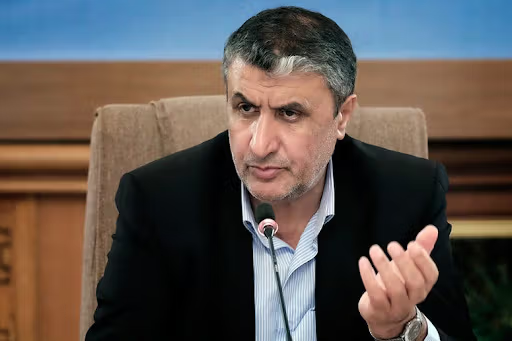
Iran nuclear chief says he has agreed with Russia to pay a 500-million euro debt in installments to keep civilian nuclear reactor projects going.
Mohammad Eslami, vice president and head of Iran’s atomic energy agency visiting Russia has said on Wednesday that he has reached an agreement about gradual payment of Tehran’s debts to Moscow.
Iran had previously said that it owes 500 million euros for services Russia rendered to maintain the Bushehr nuclear power reactor. Russia built the reactor and continues to assist Iran in maintaining its operation.
The official government news website IRNA quoted Eslami as saying that he met with Alexey Likhachev, Director General of Russia’s Rosatomand negotiated an agreement for installment payments to clear its debt, which has gone unpaid for 22 months. Eslami expressed hope that with this agreement current projects can proceed without major disruptions.
Iran is expanding the Bushehr reactor by planning to add phase two and three reactors to generate more electricity. The country suffers from a chronic shortage of electrical power, with daily outages that cripple industry and anger home consumers.
The Bushehr reactor is not part of the current nuclear dispute between the West and Iran, as Russia handles the nuclear fuel cycle. Iran has been enriching uranium at other facilities and stockpiling more purified fissile material that has alarmed the United States and its European allies.
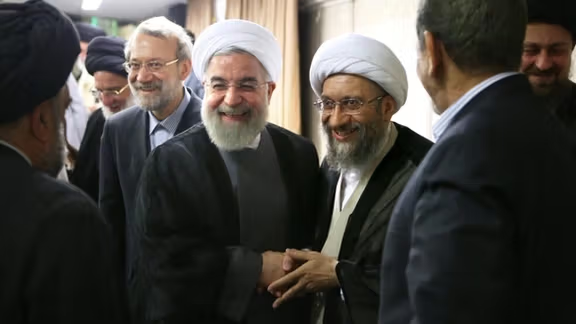
Many in Iran ask if former president Hassan Rouhani and parliament speaker Ali Larijani have been pushed out of the ruling circle for good by hardliners.
Iranian reformist politicians have been wondering about the political future of former President Hassan Rouhani and former Majles (parliament) Speaker Ali Larijani as they have been absent from the political scene after the Raisi administration took over in August.
Rouhani has been last seen at Raisi's inauguration at the Iranian parliament in early August and Larijani was seen last week after a long absence at a commemoration ceremony for a top Shiite cleric in his hometown, Amol.
It is not just a matter of their political futures. Some have also been asking about Rouhani's whereabouts. Anecdotal accounts say he was summoned to court in mid-September for an investigation, while other rumors indicate that he has been visiting Austria to see her daughter. None of the reports have been verified by independent sources.
Hardliners in parliament have been calling for Rouhani's prosecution on various grounds, mostly evolving around his alleged failures as president.
In a September 28 interview with the Iranian Labor News Agency (ILNA), Gholamreza Nouri, a self-proclaimed "politically independent" member of the Iranian parliament said that "both Rouhani and Larijani will certainly react to developments in the Iranian society."
Nouri's comment contradicts the two former politicians recent behavior as no one has heard anything from them for several weeks now. However, Nouri made it clear that he has not seen the duo for a long time now.
He also accused politicians he did not name of pushing individuals loyal to the regime out of the power circle and “kicking them out of the train of the Islamic revolution.” Meanwhile, he said that the "scenario of purging the regime" in order to come up with a unified system will backfire at one point and those who created that scenario will have be accountable for its repercussions.
Asked whether Rouhani or Larijani are planning to set up a political party, he said he did now, but added: "Knowing the two men, I am sure they would rush to solve the people's problems if anyone asks them."He said that "it is so sad to see individuals like Rouhani or Larijani in isolation."
Earlier, reformist activist and former MP Daryoush Ghanbari described Rouhani's situationas part of the political transformation as a result of the presidential election. "Obviously, Rouhani has lost his position because another president has been elected. But I have no idea if the political system is going to assign him to another position."
Ghanbari said that "Rouhani was in a difficult position during his presidency as he failed to satisfy the people, and / or the political system. Rouhani was an unlucky man. His policy of negotiation failed when Trump came to power in America." Summing up the situation, Ghanbari said, "It is unlikely that the regime would set aside Rouhani as he has been part of the regime since 1979 and has run the affairs of the state in the most difficult situations."
Speaking about the situation of Ali Larijani, Ghanbari said, "Larijani has not been set aside…Larijani is still Khamenei's adviser."
Earlier in September, conservative news website Alef quoted conservative commentator Nasser Imani as having said that "It is not good to see that the country is being gradually deprived of the services of its key politicians." The website opined that the Larijani brothers might return to political activity in other capacities and be assigned to top positions once again in the future."